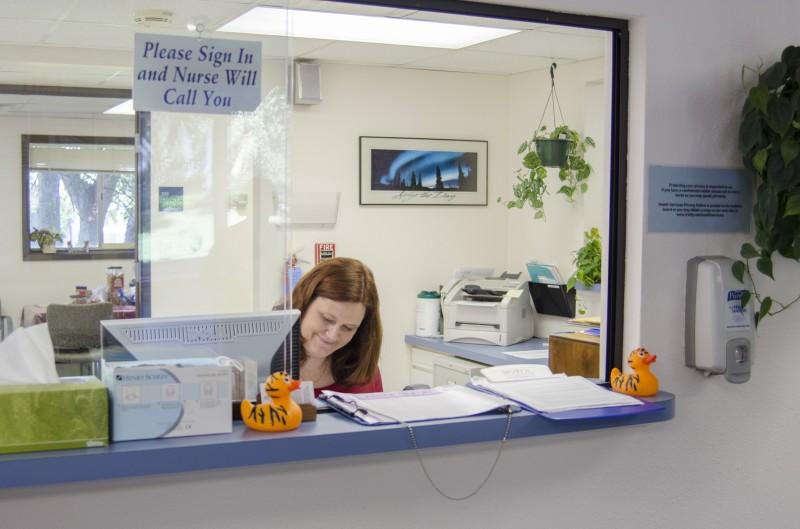Health Services is offering influenza vaccination shots this season to all members of the university community. The department began offering shots in late September, when they received the shipment of the vaccine was received, and they will continue to provide shots through the fall until their supply is depleted. Students, faculty, and staff can acquire a shot for 17 dollars.
“The [Center for Disease Control and Prevention] estimates that the annual death rate for influenza in the U.S. is between 3,000 and 49,000, depending on the severity of the season,” said registered nurse and coordinator of health services Jackie Bevilacqua.
Influenza is a contagious respiratory illness that is especially easy to transmit in the campus environment, as it is transferred by droplets produced by coughing, sneezing or talking. The virus can potentially be transferred by adults a day before symptoms appear and up to seven days after the symptoms have stopped.
Health Services recommends that community members with influenza or flu-like illnesses stay home until at least 24 hours after their fever has stopped, in order to minimize the potential of passing the virus to others.
Symptoms of the flu include fever, cough, sore throat, runny nose, body aches, headaches, vomiting and fatigue. Should someone begin exhibiting these symptoms, they are encouraged to stay home from class until their fever breaks, and those around them should take care to frequently wash their hands and avoid using utensils or eating after them.
“We encourage all students and staff to get the flu vaccine yearly, as it is the best protection from the flu,” Bevilacqua said.
Health Services offers the flu vaccine yearly to the community, and on average they are able to distribute about 400 vaccines. At times, due to media attention, they have administered more than this, namely during the swine flu epidemic in 2009.
Though there are no official records on the total number of community members affected by the flu, it affects many students every year, Bevilacqua said. In order to acquire a vaccination, members of the community can walk into the Health Services office without an appointment Monday through Friday during normal business hours (Monday through Thursday 8 a.m. to 8 p.m., Friday 8 a.m. to 5 p.m. and Sunday 2 p.m. to 8 p.m.).
Acquiring a shot requires filling out some necessary paperwork, paying $17, and, afterwards, a 20 minute wait in order to ensure that the patient does not have a negative reaction to the vaccine. After that point, the patient is released.
“It was pretty quick,” said senior Joseph Bacal. “I expected the wait to be longer.”
As some early symptoms of the flu and Ebola overlap, there have been concerns about the two recently this season. The university crisis management team and others on campus have been monitoring the cases of Ebola in the United States, and believe the likelihood of Ebola coming to campus is extremely small.
The likelihood of a patient coming down with the flu, however, is far more likely. Students and community members are highly encouraged to acquire vaccinations to avoid coming down with the flu this season.
“We would only consider Ebola if there were risk factors for exposure,” Bevilacqua said. “The Trinity community is at negligible risk for Ebola.”







